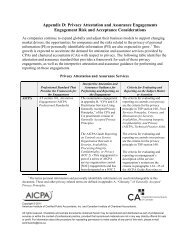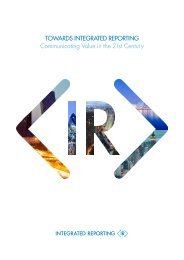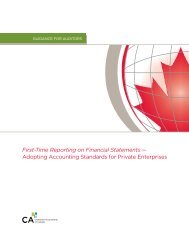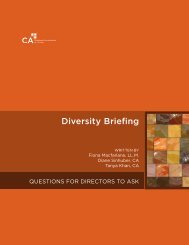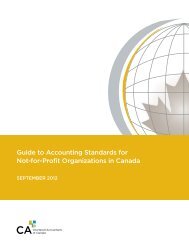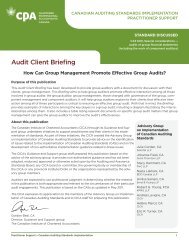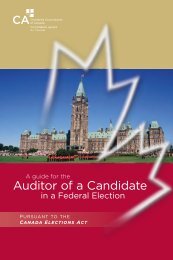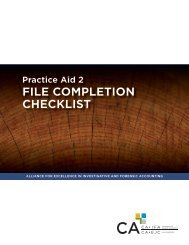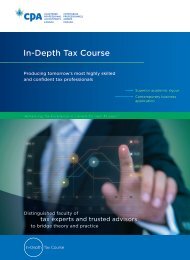20 Questions Directors of Not-for-Profit Organizations Should Ask ...
20 Questions Directors of Not-for-Profit Organizations Should Ask ...
20 Questions Directors of Not-for-Profit Organizations Should Ask ...
Create successful ePaper yourself
Turn your PDF publications into a flip-book with our unique Google optimized e-Paper software.
<strong>20</strong> <strong>Questions</strong> <strong>Directors</strong> <strong>of</strong> <strong>Not</strong>-For-Pr<strong>of</strong>it <strong>Organizations</strong><br />
<strong>Should</strong> <strong>Ask</strong> about Board Recruitment, Development and Assessment<br />
Assessment data can be compared to those<br />
<strong>of</strong> previous assessment cycles so the board,<br />
committees and directors can track their progress<br />
and development. Where possible, it can be<br />
valuable to benchmark the board’s effectiveness<br />
scores against those <strong>of</strong> other similar boards, or<br />
best practices.<br />
Boards are frequently faced with urgent issues<br />
and may be tempted to set aside activities such as<br />
governance assessment. For this reason, it is advisable<br />
to establish governance assessment as an essential,<br />
core function that should not be cancelled or deferred<br />
in challenging times or when funds are limited.<br />
Conclusion<br />
In summary, director recruitment, development and<br />
assessment by an NPO board is highly contextual<br />
and should be seen as a journey. There is no arrival<br />
at a particular and static point <strong>of</strong> perfection. Boards<br />
govern in real time and meet challenges that<br />
change from year to year. However, this said, boards<br />
that per<strong>for</strong>m their role well over time are usually<br />
composed <strong>of</strong> committed and engaged directors<br />
who adopt sound board practices under the<br />
leadership <strong>of</strong> an effective chair. These boards have<br />
a ‘sense <strong>of</strong> self’ and are committed to continuous<br />
learning and improvement.<br />
Experience shows that having such a board is not<br />
just happenstance, but results from a deliberate<br />
process that includes recruiting and developing<br />
directors with the right combination <strong>of</strong> skills,<br />
experience and personal qualities. To achieve<br />
and maintain effectiveness, these boards also<br />
implement a process <strong>for</strong> assessing their own<br />
per<strong>for</strong>mance and that <strong>of</strong> their directors, chairs and<br />
committees, and then acting on the opportunities<br />
<strong>for</strong> improvement and reporting to stakeholders<br />
that they have done so.<br />
<strong>Directors</strong> on such boards lead by example, set the<br />
right tone at the top, and, by their actions, display<br />
to the organization the importance <strong>of</strong> being well<br />
governed. It is hoped that the principles and<br />
practices articulated in this document may assist<br />
boards and individual directors in this regard.<br />
25




